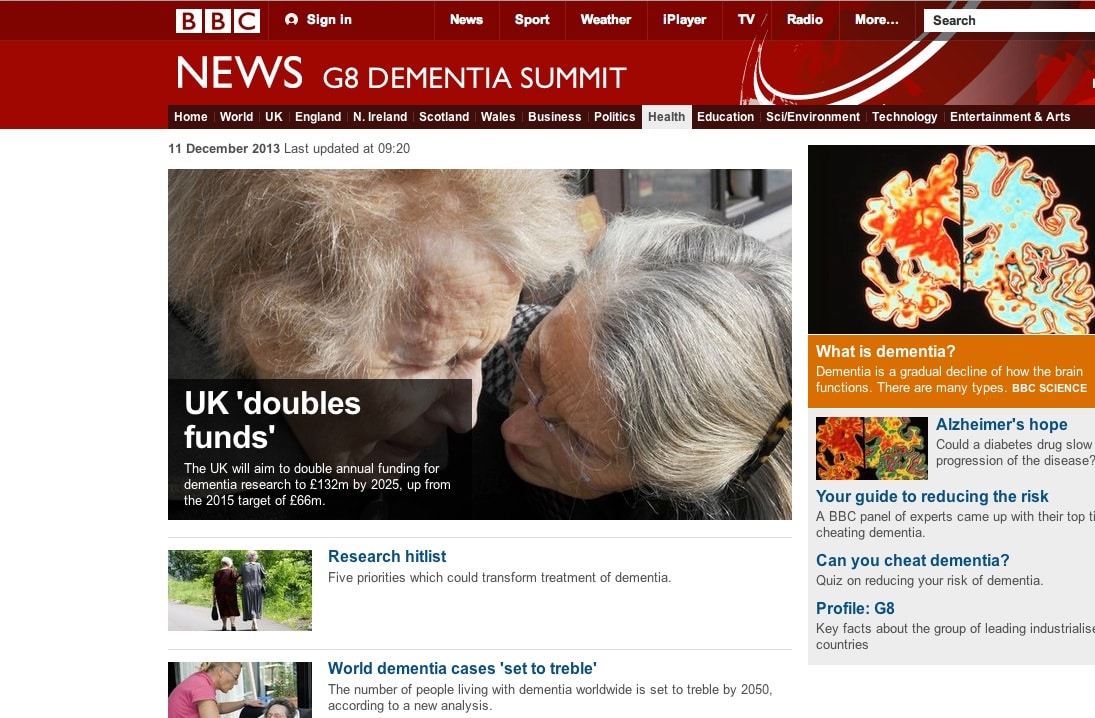An international group of 106 scientific and medical experts on dementia from 35 countries is calling on the G8 countries, who are meeting in London today (December 11th) to focus on preventing dementia.
The group will tell the G8 meeting that half of all cases of Alzheimer’s, the commonest form of dementia, are attributable to known, and modifiable risk factors including diet, exercise, control of blood sugar and blood pressure, as well as encouraging social and mental activity.
They will say that Alzheimer’s incidence could be cut by up to a fifth by taking immediate action on what is already known about how to prevent it. And the point out that while the UK government gave £20 million this year for research to tackle the dementia epidemic, none of it has been spent on prevention.
Since 2006 the UK research councils have spent £140 million on research, but only 0.1% (£156,000) has been spent on prevention, the experts claim. Over $40billion has been spent globally on developing drugs, all of which, they argue, have failed.
The expert group are calling on governments to urgently support more research into prevention and adopt public health policies that come out of this research. They cite as an example of this is the research of Professor David Smith from Oxford University, whose research has shown an eight-fold reduction in the rate of brain shrinkage and virtual cessation of memory loss by giving B vitamins to those with cognitive impairment and raised blood homocysteine.
The group says that “simple treatment costs 10p a day but is not part of current NHS or public health strategy”. According to Professor Smith: “We know enough right now to prevent, or at least delay, the onset of thousands of cases of Alzheimer’s every year, but we need a cultural change in political will towards prevention, and money to further research. Alzheimer’s is an irreversible disease and it’s time we woke up to the fact that there is no miracle drug ‘cure’ around the corner. Prevention really is better than cure.”
UK charity Food for the Brain launched a prevention campaign, called Plan B, earlier this year. Its website www.foodforthebrain.org offers a free online Cognitive Function Test that takes 20 minutes to complete. The charity says its test has been validated against the best tests used in NHS memory clinics and, based on the results, advises prevention steps and referral to your GP for homocysteine testing. “Early screening from the age of 50 is a vital part of a prevention strategy since that is when brain shrinkage is already starting.” says Patrick Holford from Food for the Brain. “Most people don’t realise that Alzheimer’s is a preventable, although not a reversible disease if you act early enough.”
A free leaflet ‘Six Alzheimer’s Prevention Steps’ is downloadable from foodforthebrain.org/preventionsteps. The full statement of the international group of experts on dementia is viewable at www.foodforthebrain.org/igedstatement




